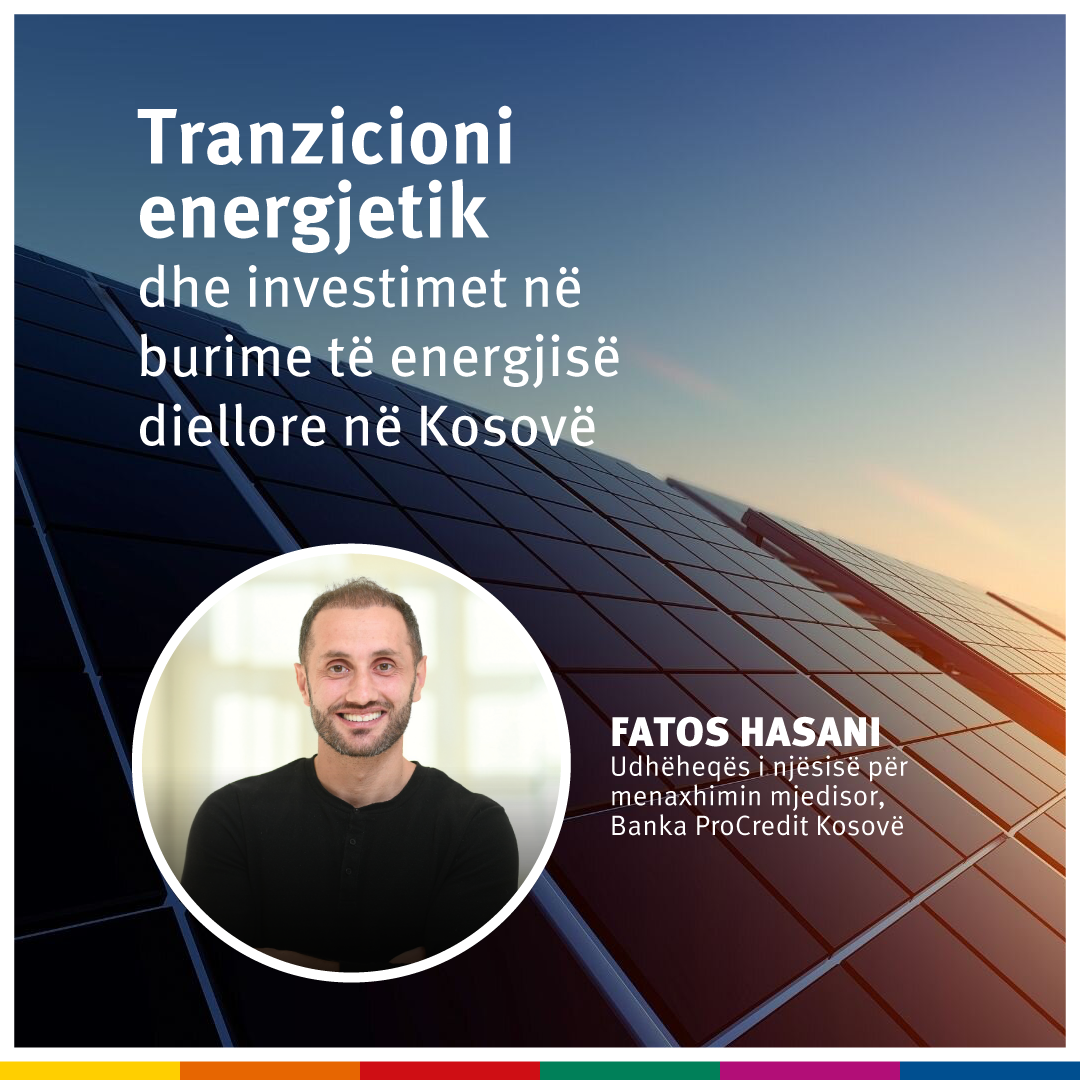
Electricity consumption is the key contributor to the emission of greenhouse gases and carbon dioxide in the industrial, commercial, and household sectors in Kosovo. This is because 95% of electric energy production is obtained through coal or lignite. The largest share of electric energy is produced by thermal plants operating with obsolete technology. Only 5% of the total installed capacity comes from renewable energy sources.
In response, concerns about the long-term sustainability of production based on fossil fuels, particularly related to climate changes and future environmental costs that are mostly unaccounted for, are now pushing the energy industry towards sustainable sources of renewable energy with low emissions of carbon dioxide. The expectations of the energy community for this change are high and Government policies should also push the sector in this direction.
Nonetheless, it seems we are headed towards a global energy crisis. Since September 2021, Europe has been facing an increase of up to 230% in electricity prices. Why is this happening? The simplest explanation is that the demand for energy is currently exceeding the supply, driving up prices. The reasons are varied, starting from the higher gas price, the post COVID-19 economic recovery, the increase in carbon tax by 76% (from EUR 34 in mid-January 2021 to almost EUR 60 in October 2021). Furthermore, many countries around the world have stopped investing in fuels as it seems there is no sufficient clean/renewable energy to substitute fossil fuels.
It is understandable that modern societies cannot function without sustainable access to energy, so governments do anything possible to provide energy when such crises hit. Thus, there is increasing concern that governments may then favour fossil fuels, which works against sustainability strategies.
Currently, the energy market in Kosovo is highly dependent on fossil fuels, leaving Kosovo with the worst electric energy mix in the region in terms of environmental and social impact. Therefore, and considering that it imports an average of 12-18% of its electric energy each year, Kosovo needs a serious energy transition strategy, acknowledging the fact that carbon dioxide emissions should be reduced quickly and effectively, and the increase in electricity prices (which seems inevitable) should be managed gradually.
In order to move towards the energy transition, Kosovo should by all means increase its production capacities by enabling a mix of all renewable energy sources.
From among the renewable energy sources, solar power is the solution that offers the most opportunities to reduce emissions of greenhouse gases and help fight global warming. Despite its high overall potential, solar power’s share in Kosovo electricity production (including systems not connected to the electricity network) is unfortunately only 1%.
Solar power technology relies on an inexhaustible source of primary energy, has been technically proven and already offers economic incentives for investment, providing opportunities at all levels of a society, from institutions and industry to the private individual or household level.
These investments are channelled through:
Lastly, I would like to emphasise that for ProCredit Bank, minimising negative environmental impacts and proactively promoting sustainable ways of doing business is an integral part of our strategy. Acknowledging the role of photovoltaic system investments in reducing greenhouse gases, as a bank we have been active in this market since 2017, promoting and financing such investments.
According to our internal calculations, as of November 2021 we had financed 60% of the installed capacity of self-consumption photovoltaic systems used by small and medium-sized enterprises in Kosovo. This comprises a total of 57 projects with total installed capacity of 9.7 Mwp.
Moreover, we continuously invest in staff qualifications, thus creating a high level of expertise, which has enabled us to become market leaders in financing solar systems and also serve as a catalyst of sustainable energy transition.
Fatos Hasani
Head of Environmental Management Unit
ProCredit Bank Kosovo